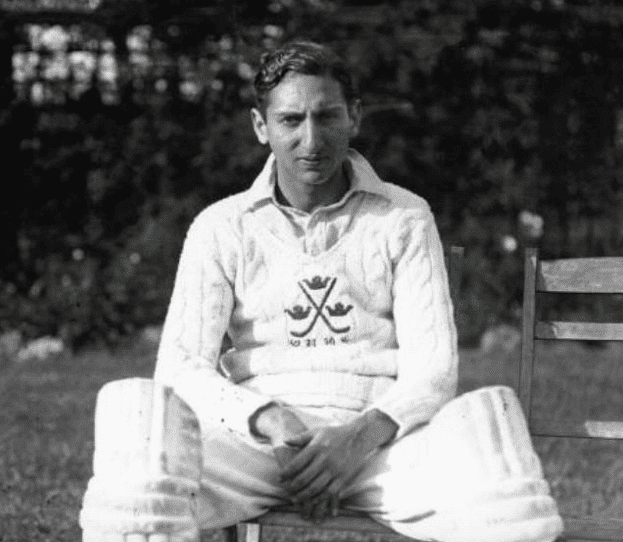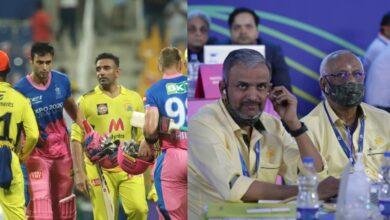Nawab Pataudi Achieved An One-Off in Indian Cricket History. What Was It?
Deprecated: preg_split(): Passing null to parameter #3 ($limit) of type int is deprecated in /home/u548478835/domains/sportsamaze.com/public_html/wp-content/themes/jannah/framework/functions/post-functions.php on line 791

Before India got independent, the nation was exploited by Britain in several ways and one of they were consigning Indian soldiers to fight for them while the sporting side of it is the introduction of India’s finest cricketers to their side one of which was IAK Pataudi.
Unfortunately, despite vehement attempts, no cricket player in India at that point in time was that sublime who could have earned incorporation in the English side, except for one man. He went by the name of the Senior Nawab of Pataudi, better known as Mohammad Iftikhar Ali Khan Siddiqui Pataudi or I.A.K Pataudi.
The air of elegance with which he dominated the pitches was a wondrous spectacle for fellow cricket lovers and the English believed that he will be a fine addition to their posh game of gentlemen.
This is how Pataudi Sr. came into recognition
With a historic and rich legacy ambling behind senior Pataudi, he was trained in cricket by Oxford cricketer, MG Slater in school and was then was coached in England by the illustrious Frank Woolley. He announced his arrival to the glamorous scene of cricket in England with a towering 106 and 84 that saved the blushes against Cambridge.
Challenging Alan Ratcliffe in University cricket, he cited that he will be beating the record 201 scored by him, he went on to smash a rippling 238 on the very next day and to add to his laurels, he stayed unbeaten. With all said and done, his ticket to the historic Ashes tour and his debut for England came when he mercilessly slaughtered Tich Freeman like cattle, clubbing 165 for the Gentlemen at the iconic Lords.
Not only did he get selected for the Ashes tour, he also went on to impose a thunderous showdown against the arch-rivals of England in cricket, Australia that also won him the prestigious award of the Wisden Cricketer of the Year in 1932.
His performances at the Ashes comprised a sublime century in his very debut at Sydney where he smoked a brilliant 102 that also helped the visitors to inflict a punishing victory on Australia.
Unfortunately, he fell out with the English captain over his discordance on the Bodyline tactics which were to be imposed by Douglas Jardine. Jardine did not let the opportunity of axing him when he failed to conjure something special in the second Test.
There was a famous spat that happened between the duo which by far remains to be an iconic aspect of IAK Pataudi’s cricketing life. Upon refusing to take the field in a bodyline leg-side, Jardine mocked Pataud, citing, “I see His Highness is a conscientious objector.”
The Nawab did not let go of his royal magnificence as he retorted, “I am told he has his good points. In three months I have yet to see them.”
In 1933, Nawab Pataudi came back to the stately form that saw him ripping Freeman to shreds again, bashing two stupendous double-hundreds. Despite a rollicking start to the season, Pataudi couldn’t complete the season as his health broke down midway and he had to finish his 1934 campaign with only 10 county games that saw him chronicle an astonishing average of 91.33.
Nawab Pataudi finally achieves this historic feat
Team India thought of making the Nawab Pataudi their captain, but despite picking him up in 1932, they had to let him go due to his English obligations and once again India failed to cop the services of the Nawab in 1936 as he decided to pull himself out of the India squad on the premise of fragile health. He finally got back his Indian crown as he was shouldered with the onus of leading India in 1946 against England. He only managed to score 55 runs in 5 innings on this tour, but surprisingly he managed to pen an astonishing average of 46 in the series.
With this feat of leading India in 1946, he also became the only Indian cricketer to have played for both India and England and captain the former in three Test matches. He was declared as the Indian cricketer of the year in 1946-47. He wanted to make a comeback in cricket in 1952 for Worcestershire but life was too cruel to him as he passed away at an untimely age of 42 years.
His legacy in Indian cricket was later amplified by his son, who personified elegance and class, Tiger Ali Khan Pataudi.




